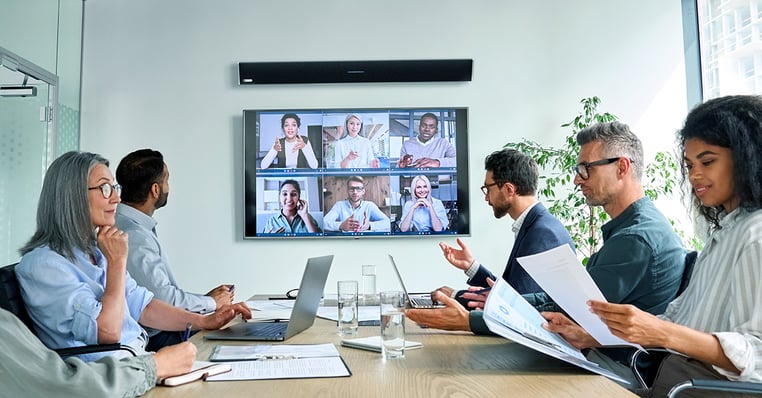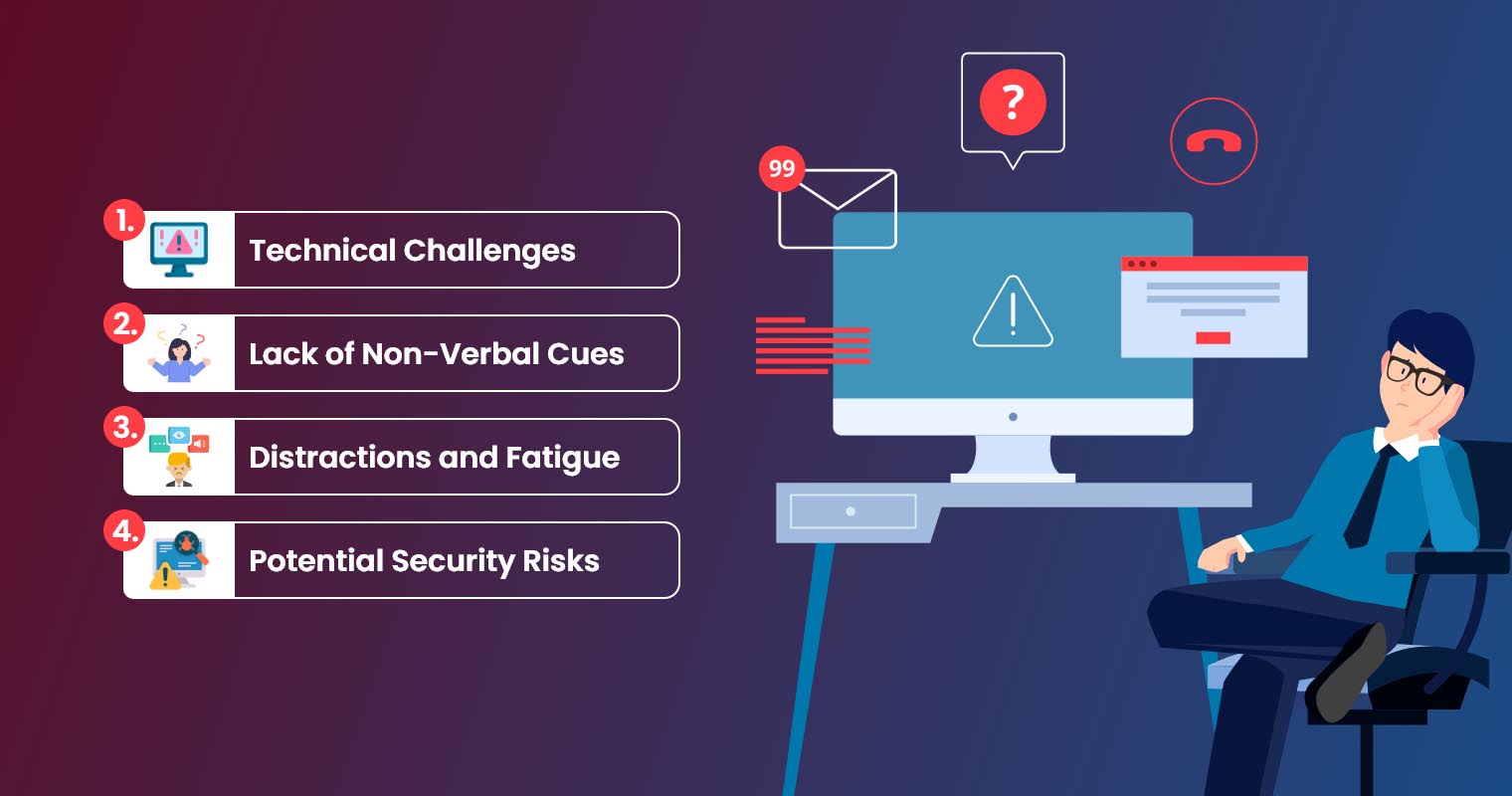Bridging the Virtual Divide: Lessons from a Frozen Webcam in Hybrid Meetings
- Published On

We’ve all been there—half your team’s faces pixelate into digital mosaics mid-sentence, while the other half shuffles papers in a conference room that suddenly feels miles away. Last spring, I learned the hard way that hybrid meetings aren’t just about hitting "join meeting" and hoping for the best. They’re delicate dances between two worlds, and if you’re not leading, you’re stumbling.

Let me paint you a scene: rain tapped nervously against our office windows as I tried to present quarterly results. Our remote teammates looked like flickering ghosts on the screen, their voices lagging like tired echoes. Meanwhile, Sarah from marketing kept leaning into the mic asking, “Can you see my slides?”—unaware her screen share had frozen five minutes prior. The tension was thicker than my morning coffee.

Tools matter, but so does choreography
A slick platform won’t save you if you treat virtual attendees as afterthoughts. I’ve become religious about the “two-minute tech ritual” before every meeting: camera checks, mic tests, and that magical “enable captions” button that’s saved non-native speakers in our team more times than I can count. But here’s the kicker—technology is the stage, not the performance.
Pre-Meeting Tech Ritual Checklist:
| Task | Purpose | Tool/Feature | Time Required |
|---|---|---|---|
| Camera Check | Ensure visibility and clear image | Built-in camera test | 2 minutes |
| Mic Test | Confirm audio clarity | Built-in mic test | 1 minute |
| Enable Captions | Assist non-native speakers and hearing impaired | Zoom/Microsoft Teams captions | 30 seconds |
| Screen Share Test | Verify sharing works smoothly | Zoom/WebEx/Microsoft Teams | 1 minute |
What transformed our meetings? Treating silence as a superpower. When John from Tokyo weighs in after three beats of quiet, his insight often cracks the problem wide open. We’ve started building “breathing room” into agendas, using digital whiteboards where introverts sketch ideas even as extroverts brainstorm aloud. It’s messy. It’s beautiful. It works.
The magic of intentional awkwardness
Icebreakers make me cringe—unless they’re designed to be cringey. Our favorite: “Share your screen’s most embarrassing tab.” (RIP to my dignity when that 3 AM pizza order receipt surfaced.) Suddenly, the intern in Buenos Aires and the VP in Berlin weren’t just squares on a grid—they were humans who also forgot to close browser windows.
We’ve embraced “asynchronous rituals” too. A shared playlist where folks add songs that match their mood. A digital “parking lot” sticky wall for ideas that bubble up post-meeting. It’s like tending a garden—you plant seeds together, but growth happens in quiet moments.
Examples of Asynchronous Rituals
| Ritual | Description | Tool/Feature |
|---|---|---|
| Shared Playlist | Team members add songs reflecting their current mood | Spotify/Apple Music/YouTube |
| Digital Parking Lot | A virtual sticky wall for post-meeting ideas | Miro/Mural/Trello |
| Inspirational Quote Board | Team members share quotes that inspired them recently | Slack/Teams/Google Docs |
The elephant (and the mouse) in the room
Let’s name it: hybrid meetings magnify power imbalances. Early on, I noticed remote participants getting talked over like static. Now we use a “talking token” system—pass a virtual object to claim airtime. Bonus? It surfaces who hasn’t spoken yet. (Pro tip: Animated emoji reactions let quiet folks cheer without breaking their silence.)
Here’s what nobody tells you: The real game-changer isn’t software. It’s learning to host like you’re cooking for friends—aware of dietary restrictions, but still serving surprise delights. Last week, we did breakout rooms where in-person folks paired with remote partners via mobile hotspots. The energy crackled like popcorn.
Your turn
Next time you’re staring at that split screen—half glowing faces, half office chairs—ask yourself: Are we just sharing information, or are we building a space where both sides lean in? Because when my webcam froze last month, something unexpected happened. Instead of frustration, we dissolved into laughter. Turns out, my frozen “WTF” face makes a great meme. Now it’s our team’s unofficial logo—a reminder that connection thrives not in perfection, but in the messy, joyful middle.
What frozen moment could become your breakthrough?
Frequently Asked Questions
1.What are related searches on Google?
Related searches on Google are additional keyword suggestions generated by Google's algorithm, appearing at the bottom of the search results page. These keywords are related to your initial search query and can be useful for finding more specific or relevant information. For example, searching "beard oil" might yield related searches like "best beard oil" or "organic beard oil." This feature is beneficial for SEO and content creation.